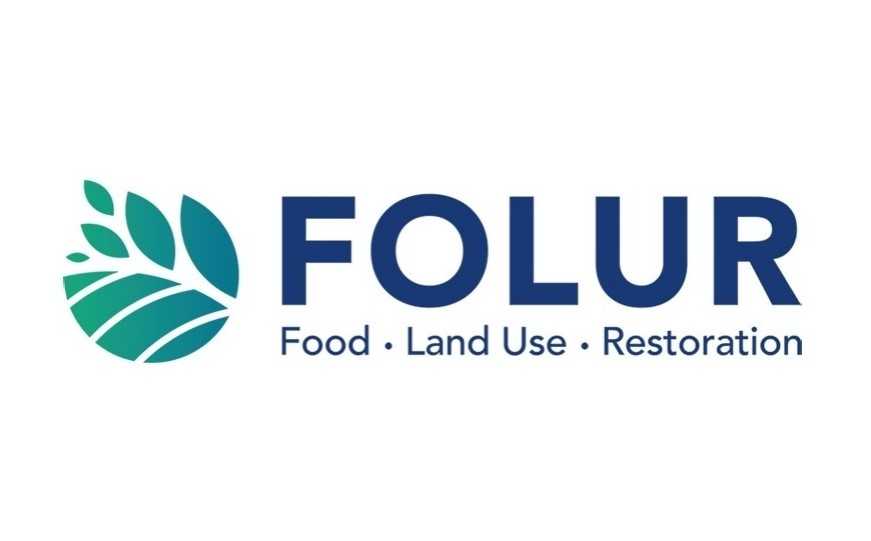GLASGOW, UK – At an event at COP26 in Glasgow, a new $345 million, seven-year program, The Food Systems, Land Use and Restoration Impact Program (FOLUR), will launch projects in 27 countries, targeting the production and value chains of eight key commodities: beef, cocoa, coffee, maize, palm oil, rice, soy, and wheat. FOLUR aims to transform global food and land use systems through a Global Platform and 27 country projects that restore degraded landscapes and intensify sustainable land management practices.
With agriculture being the largest user of land and water, second only to energy for its contribution to climate change, this Program is an essential tool in our global toolkit, to accelerate climate action and deliver the Sustainable Development Goals. Funded by the Global Environment Facility and led by the World Bank, the program seeks to address a range of climate-related environmental concerns, including agricultural adaptation and mitigation, and has a strong gender component – tackling gender gaps at the nexus of food, land use and restoration, in recognition that we cannot transform food systems and make natural resources management more sustainable without gender equality.
Promoting a new, integrated approach to reduce the environmental impacts of food production, FOLUR will leverage $2.7 billion of additional co-financing to improve agricultural ecosystems and policies. Through its global partners, the Impact Program will collaborate and strengthen the capacity of farmers, communities, governments, the private sector, and financial institutions. Taking a cross-sectoral approach, the program will repurpose and mobilize financing from public and private actors to drive sustainable food production at scale to deliver global environmental benefits.
“To make a dent in the climate crisis, we need to work together to address the significant environmental strains from today’s global food systems and land use patterns. Through the FOLUR Impact Program we have an opportunity to make needed changes across landscapes, sectors, and value chains of commodities, using an integrated approach to tackle the drivers of unsustainable land use and degradation and build better food systems,” said Carlos Manuel Rodriguez, CEO and Chairperson of the GEF.
“There is a groundswell of support coming out of this COP to protect our forests and restore our landscapes. FOLUR does just that: making food production more sustainable and building sustainable landscapes and agricultural value chains at scale. We have a unique opportunity to support countries to transform their food systems, in support of healthy people, a healthy planet and healthy economies,” said Martien van Nieuwkoop, Global Director in the Agriculture and Food Global Practice, World Bank.
About the Global Environment Facility
The Global Environment Facility was established 30 years ago on the eve of the Rio Earth Summit to tackle our planet’s most pressing environmental problems. Since then, it has provided more than $21.5 billion in grants and mobilized an additional $117 billion in co-financing for more than 5,000 projects and programs. The GEF is the largest multilateral trust fund focused on enabling developing countries to invest in nature, and supports the implementation of major international environmental conventions including on biodiversity, climate change, chemicals, and desertification. It brings together 184 member governments in addition to civil society, international organization, and private sector partners. Through its Small Grants Programme, the GEF has provided support to more than 25,000 civil society and community initiatives in 135 countries.
About FOLUR
The Food Systems, Land Use and Restoration Impact Program (FOLUR) is a $345 million, seven-year program funded by the Global Environment Facility. Seeking to transform global food and land use systems, the program mobilizes sustainable production landscapes in 27 country projects for eight major commodities, including beef, cocoa, coffee, maize, palm oil, rice, soy, and wheat. FOLUR improves agricultural ecosystems and policies through collaborations with land managers, governments, researchers, the private sector, and financial institutions. World Bank-led, supported by the Global Environment Facility (GEF), FOLUR collaborates with five key partners: the Global Landscapes Forum (GLF), Food and Agriculture Organization of the United Nations (FAO), International Finance Corporation (IFC), United Nations Development Programme (UNDP) Good Growth Partnership, and the Food and Land Use Coalition (FOLU).















